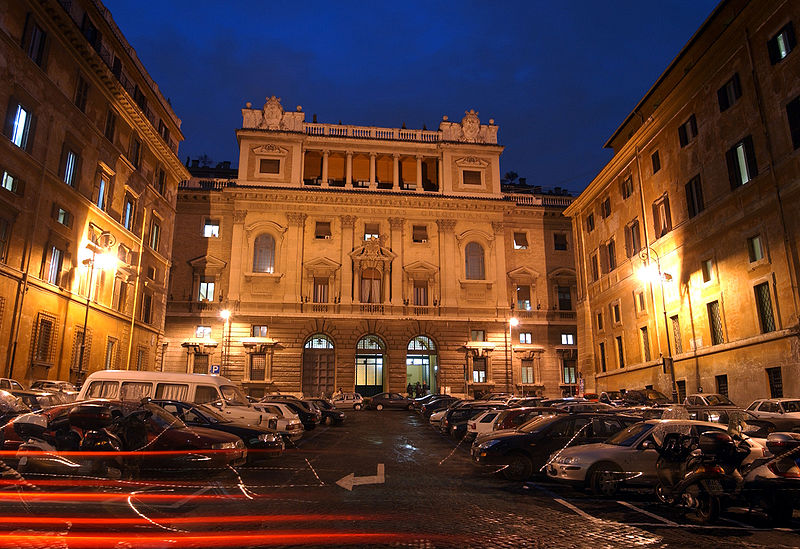Reflections on a Term at the Gregorian University
Since the students had no textbooks, I loaned out the 15 or so books I had brought with me for research, and I sent them a 300-page bibliography on “Pentecostalisms” that I use in the course I teach at Fuller. As the course continued, I ended up preparing nearly 300 pages of extended typewritten notes covering the lecture material, many of them from scratch. That meant that nearly all of my free days were spent preparing lectures. In the end, I had only a day and a half to look around the city. Still, the students loved the notes and were effusive in their appreciation of the work I have done on their behalf. I sent out the notes one or two days before each class, which gave us the opportunity to talk specifically to issues raised by my material, as well as new insights or concerns that they had.
The course began with an introduction and a definition of terms, an overview of the Pentecostal pre-history in the Wesleyan-Holiness tradition, and the cultural context in which it emerged. We talked about the revivals that occurred both immediately before and immediately after 1900 around the world. We went on to explore various models of theological development, especially related to baptism in the Spirit, evangelization and mission, disputes over sanctification and the nature of the Godhead, and the nature of the four/fivefold Gospel. We looked at a range of Classical Pentecostal denominations and organizations such as the World Assemblies of God Fellowship, the Church of God in Christ, the Church of God (Cleveland), the International Church of the Foursquare Gospel, the Apostolic Faith Mission of South Africa, and the Pentecostal World Fellowship. We talked about the various approaches to polity found in Pentecostal churches around the world, from the radical congregationalism found in Scandinavian churches, to the episcopal model found in the Pentecostal churches stemming from Methodism and the Holiness Movement, as well as the mix of Congregational and Presbyterian models in the Assemblies of God. We looked at the impact of the Latter Rain revival of the late 1940s. We talked about the nature of Pentecostal worship.
We discussed Neo-Pentecostalism and the rise of ‘Prosperity’ churches, which proved to be an important discussion.

The Pontifical Gregorian University at night.
Image: Wikimedia Commons
Most of my students were Catholic priests. Some were diocesan priests, others were either Jesuits or they came from another smaller community or order. They came from Cameroon, Malawi, Vietnam, Ireland, Italy, Israel, and the United States. I also had one Jewish student. He was a PhD student at the Hebrew University in Jerusalem. His mentor sent him to the Gregorian so that he could learn something about Christianity. His dissertation topic will be on Pentecostal and Charismatic churches in Israel. He was very excited as he told me how his mentor in Jerusalem had sent him to the Gregorian to study Christianity. When he saw my course on Pentecostalism and found it was available in English, he was ecstatic! “What a coincidence that the Gregorian would offer such a course at precisely the time that I need it”, he informed me. I responded with, “I don’t really believe in coincidence. I believe that it was God, who brought us together”. In any case, he is not a Christian convert, though he attends a large charismatic church in Jerusalem, is enjoying it very much, but needs to understand it better. He was constantly asking questions about Jewish-Pentecostal relations, Pentecostal understandings of “eschatology”, and Pentecostal views on “replacement theology”.
All of my students were anxious to take what they were learning and apply it at home. One priest from Ireland has been a missionary in Beijing for the past twenty years. One morning, he asked me if I had ever heard of a Pentecostal minister named Rob Burkhart. He and Rob were neighbors in Beijing. When I told him that Rob had been my neighbor years ago when he was a student at Fuller, he practically fell over. “Two of the biggest life-changing influences in my life”, he reported, “are Rob and you. And it is amazing that the two of you should know one another”.
All of these students are now much more positive about Pentecostals.
Category: Ministry, Spring 2018


